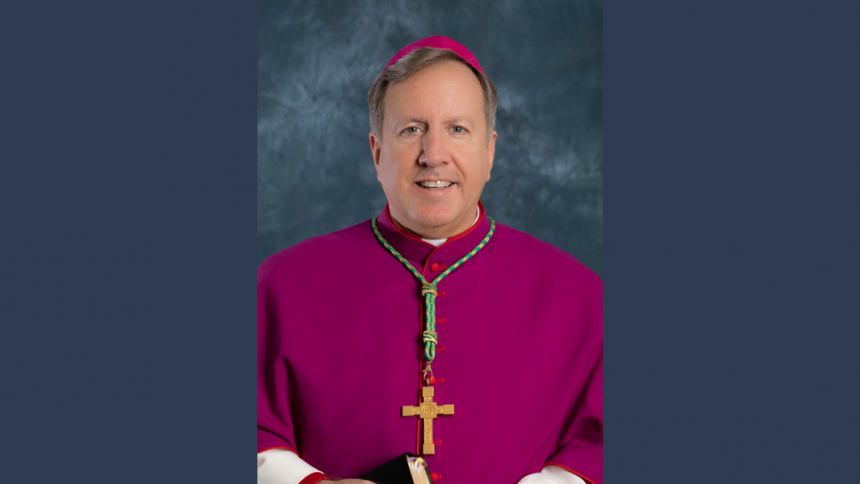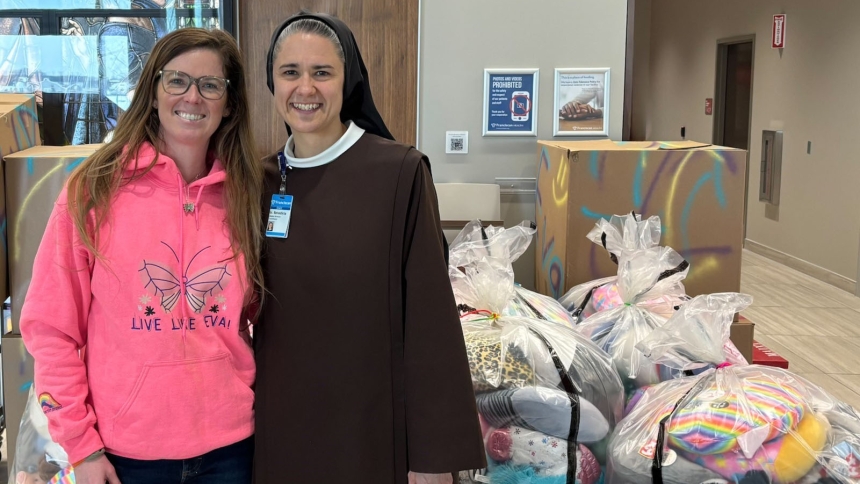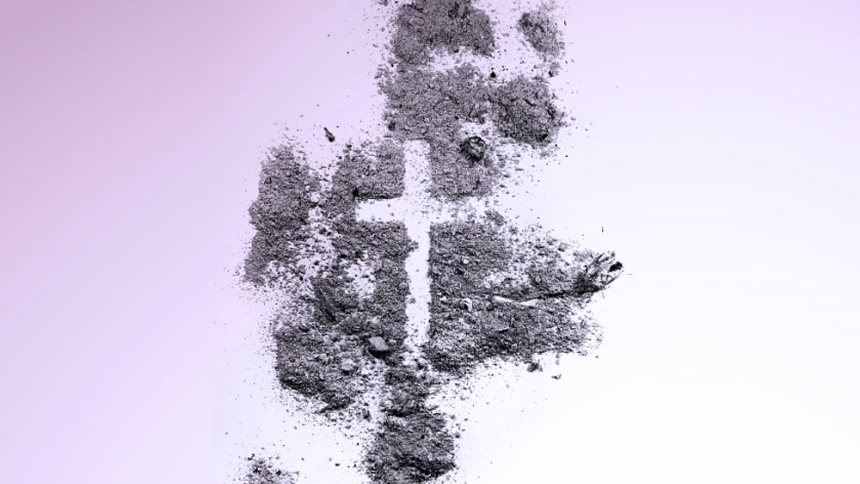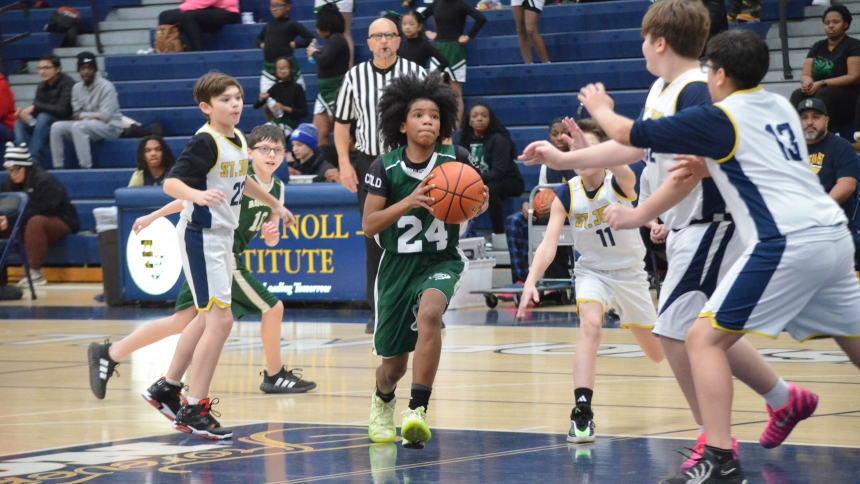
One of the artifacts from the patrimony of Bishop Andrew Grutka, the founding bishop of the Diocese of Gary, is a “Council Ring.” The name derives from the fact that “Council Rings” were given by Pope Saint Paul VI to Bishop Grutka and all the other bishops who participated in the Second Vatican Council. On occasion, I am privileged to wear this ring and have allowed my imagination to wander as to what the Vatican II experience would have been like for him. What issues were the Church and society facing?
With over 2,800 bishops present from around the world, it must have been an incredible movement of the Holy Spirit. Not every bishop would have made a formal intervention to speak publicly at the Council, but Bishop Grutka did speak. His one public intervention before the Pope and all the bishops of the world occurred on October 28, 1964. His intervention was covered in the New York Times and around the world. What did he address during his public comments? The evil of racism. Here is an account of his intervention:
[The discussion on] the principal task of the Christian today, heard another powerful denunciation of racial discrimination from Bishop Andrew G. Grutka of Gary, Ind. He branded it a “challenge to Divine Providence.” Some form of hate or disrespect can be found in every act of racial segregation, Bishop Grutka said. Every form of racial segregation and discrimination should be denounced with the strength of the trumpets of Jericho, he declared.
When Bishop Grutka made these comments, I had just turned one year old. A year earlier, Bishop Grutka issued a pastoral letter on racial discrimination to the Diocese of Gary entitled: “How Good a Neighbor Am I?” As I have come to know of his legacy more clearly, it is apparent that Bishop Grutka was a leader who worked very hard to overcome any form of racial injustice.
Flash forward forty years later to August 6, 2003 and Bishop Dale Melczek issued: “Created in God’s Image: A Pastoral Letter on the Sin of Racism and the Call to Conversion.” In his introductory letter, Bishop Melczek writes:
It is my fondest hope and fervent prayer that all of our Catholic faithful will respond to the guidance of the Holy Spirit as the Spirit calls upon each of us to address the sin of racism as found within our hearts and to openly engage in dialogue with our brothers and sisters about this pernicious sin. The first step in dealing with this sin is to summon the courage to face our own insecurities and fears and to be open to Jesus’ call to deeper conversion which we receive through the Scripture and the teachings of our Church. I invite you to join me in that process.
This landmark pastoral letter was followed by a multi-year process of reflection, conversation, and concrete action steps.
Have we made progress since 1963 and 2003? Yes. Have we made enough progress? No. In 2020, we now find ourselves needing to address the sin of racism once again.
Sadly, the sin of racism is something that every generation must confront. Recent events, most especially the killing of George Floyd, require us to speak out and act against racism once again. In today’s issue of the Northwest Indiana Catholic, you will find a variety of resources and articles dedicated to this topic. The conversation in our diocese initiated in the 1960s and carried into the new millennium must now continue into 2020 and beyond.
In the immediate wake of the killing of George Floyd, I offered some initial thoughts which I repeat today. I share the sentiments of my brother U.S. Bishops and join in their prayers for George Floyd, his loved ones and all those who experience racial injustice. We, like so many of you, are outraged by his tragic death. Archbishop José H. Gomez of Los Angeles and president of the U.S. Conference of Catholic Bishops (USCCB) observed accurately that, “We need to finally root out the racial injustice that still infects too many areas of American society.”
Every human person is created beautifully in the image and likeness of God. We are called to serve one another with mercy and love. In many communities, including Northwest Indiana, people have gathered to express their extreme sadness, justified frustration, and anger with the injustices that many in our nation endure. Violence and self-destruction should be rejected. Peaceful protests should be met with understanding and compassion. In a particular way, I am asking our priests to include special prayer intentions in our Masses for an end to injustice and the scourge of racism, and that we be inspired to bring compassion, mercy and justice to this hurting world.
Let us pray that God will bring much needed healing to our communities and nation. Let us pray for all victims of racial injustice. Let us pray for those in law enforcement and public service who earnestly fight for the protection and dignity of all human life.
The struggle to end racial injustice continues. All of us have a part to play. We should never become complacent and think we have “arrived” and somehow brought an end to all racism. We haven’t. It’s hard for many to examine our hearts and our society and address this sin. Many are not even comfortable talking about racism. As with all sins, it’s often easy to ignore, minimize or suppress the magnitude of our sins. It’s time to look once again, my brothers and sisters, to respond without fear, to open our hearts to the Holy Spirit, to be an agent of His love and mercy to a world hurting with the sin of racism.
Jesus, I Trust in You!
Our Lady of Lourdes, pray for us.
Your servant,
The Most Reverend Robert J. McClory
Bishop
Diocese of Gary



